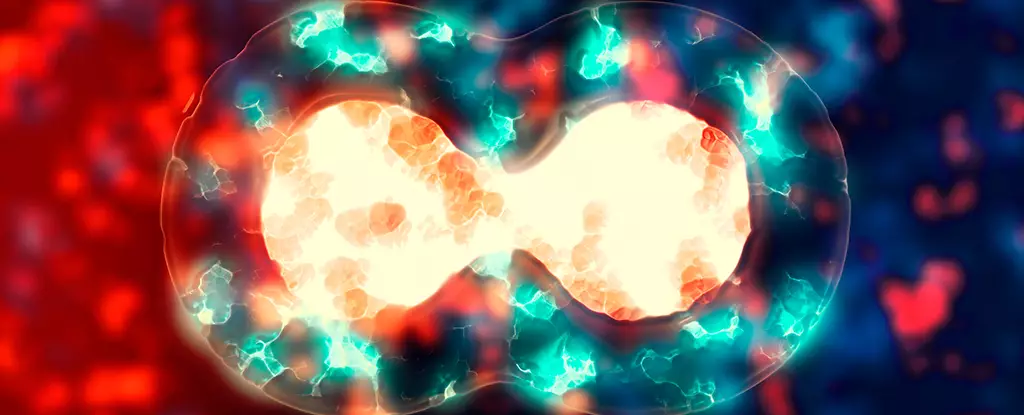Early gestation, a critical period in human development, continues to hold many mysteries for scientists. In an effort to shed light on this crucial phase, a team of researchers led by clinician-scientist Eduardo Maury from Harvard Medical School embarked on a groundbreaking study. By analyzing genetic data from thousands of individuals, they discovered two genetic deletions associated with schizophrenia. These findings challenge the traditional understanding of schizophrenia as solely an inherited disorder and suggest a link between the condition and events occurring in early pregnancy.
Schizophrenia is a severe neurological disorder that arises from a combination of genetic and environmental factors. Childhood trauma, viral infections, and other events can increase the likelihood of developing symptoms such as delusional or disordered thinking. With a global prevalence of 1 in 300 people, schizophrenia typically manifests in early adulthood. However, recent research indicates that the physiological origins of the disorder can be traced back to early pregnancy or gestational complications.
In 2023, Maury and his team made significant progress in uncovering the genetic underpinnings of schizophrenia. Through their analysis, they identified two genes, NRXN1 and ABCB11, that appear to be associated with the disorder when certain copies of these genes are missing during early development. These mutations, known as copy number variations, involve the duplication or deletion of genes or stretches of DNA. While some copy number variations can be inherited, the deletions found in NRXN1 and ABCB11 are considered somatic mutations, acquired after embryonic cells have already begun their trajectory.
NRXN1, a gene involved in transmitting signals between brain cells, has been previously associated with schizophrenia when mutations are inherited. However, Maury’s study revealed a novel finding – partial deletions of NRXN1 in five cases of schizophrenia. These deletions were significantly more prevalent in the affected individuals compared to the control group. This discovery suggests that somatic mutations in NRXN1 can contribute to the development of schizophrenia, providing further evidence of its complex etiology.
ABCB11: An Unexpected Link
In addition to NRXN1, the researchers also found deletions within the ABCB11 gene in five cases of schizophrenia. Surprisingly, these individuals showed resistance to antipsychotic medications. The association between ABCB11 and schizophrenia is less understood and has not been strongly implicated in the disorder before. While ABCB11 is known to encode a liver protein, its role in schizophrenia requires further investigation.
The identification of these genetic alterations in early gestation opens the door to potential prevention strategies for schizophrenia. By understanding the mechanisms behind these deletions and their impact on brain development, researchers may be able to develop interventions to counteract or mitigate the effects of somatic mutations. However, more research is needed to fully comprehend the extent to which these genetic variations contribute to overall schizophrenia risk.
Maury and his colleagues conclude that the alterations in NRXN1 and ABCB11 “may contribute a small but significant part of the genetic architecture of schizophrenia.” This finding challenges the prevailing belief that schizophrenia is primarily hereditary. Instead, it suggests that events occurring during early gestation can shape an individual’s susceptibility to the disorder. By unraveling the complex nature of schizophrenia, scientists are paving the way for targeted interventions and personalized treatments.
The study conducted by Maury and his team sheds new light on the genetic factors associated with schizophrenia and their connection to early gestation. By identifying somatic mutations in NRXN1 and ABCB11, they offer a fresh perspective on the origins of this complex disorder. Further research is necessary to fully understand the impact of these genetic alterations and their potential for early prevention. As the window into early gestation slowly expands, we inch closer to unraveling the mysteries of schizophrenia and developing novel strategies for intervention and treatment.


Leave a Reply